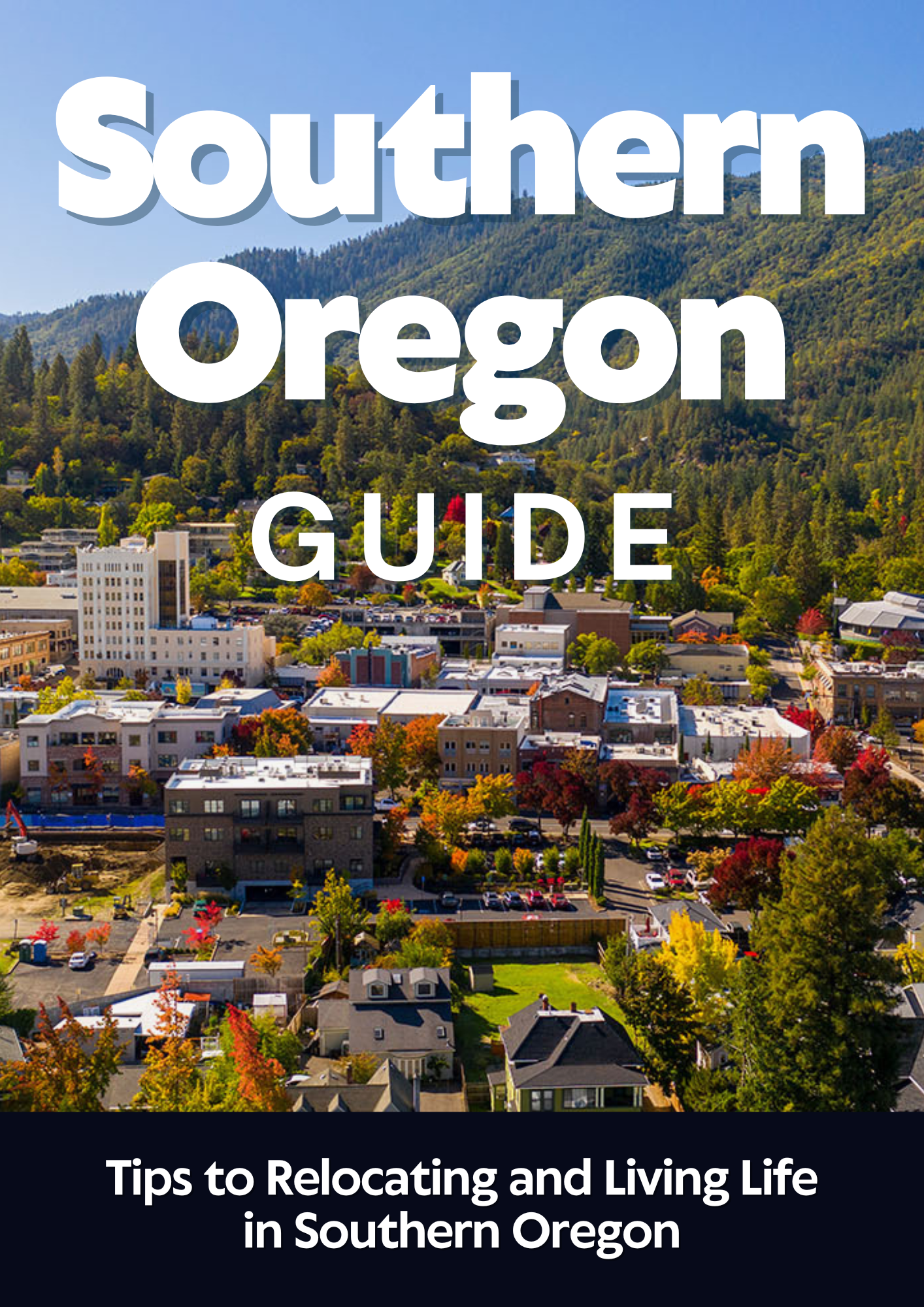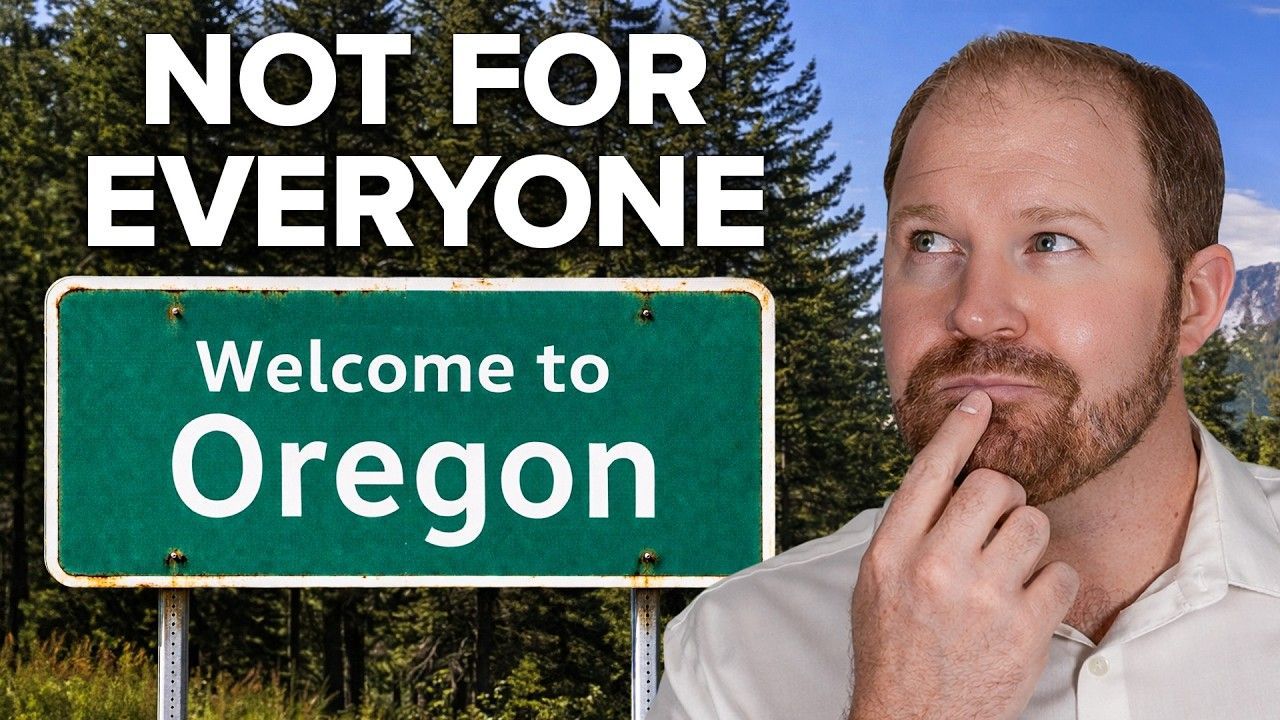AVOID Moving to Medford Oregon - Unless You Can Handle These 9 Things!
I put this together after a real conversation with a client who'd recently relocated here — and a few months later called me to say, "we hate it here." If you're seriously considering moving to Medford, Oregon, you deserve the straight truth, not just the brochures. I made a video about this and I'm writing it up now so you can read, reflect, and decide if moving to Medford, Oregon is right for you.
I'll walk through the nine biggest reasons why moving to Medford, Oregon could be a mistake for some people — and why for others it's a perfect fit. I’ll be direct, practical, and honest. If you want a checklist to help you decide whether moving to Medford, Oregon is for you, this article is for you.
Table of Contents
- Introduction: Why You Should Read This Before Moving to Medford, Oregon
- The Full List: Nine Reasons You Might Regret Moving to Medford, Oregon
- How to Decide if Moving to Medford, Oregon is Right for You
- Practical Tips for Newcomers — How to Make Moving to Medford, Oregon Smoother
- FAQs About Moving to Medford, Oregon
- Final Thoughts — Should You Move to Medford, Oregon?
- Closing Note
Introduction: Why You Should Read This Before Moving to Medford, Oregon
There are a lot of optimistic videos and listings that show the highlights of Southern Oregon — the sun, the outdoor lifestyle, and quiet streets. That’s all real, but it isn’t the whole story. If you’re moving to Medford, Oregon, you should know both sides: the practical headaches, the rare weather extremes, and the cultural vibe. I’m pulling from local data, recent policy changes, and real conversations I’ve had with clients to give you a balanced, unvarnished outlook.
VIEW HOMES FOR SALE IN MEDFORD, OREGON
The Full List: Nine Reasons You Might Regret Moving to Medford, Oregon
1. Homelessness — visible but improving
Yes, there are homeless people in Southern Oregon. If that’s a major concern for you, then moving to Medford, Oregon might feel uncomfortable. That said, it’s important to put it into perspective. Compared to larger Oregon cities like Portland, Eugene, and Salem, Jackson County's homelessness problem is smaller and — crucially — improving. Recent local efforts reported nearly a 10% decrease in the county’s homeless population. That’s progress driven by collaborations between local nonprofits, the Southern Oregon Homeless Summit initiatives, and new state funding for housing and rental assistance.
So, while homelessness is here, it’s not static — and if you’re moving to Medford, Oregon, expect continued attention on solutions. If you plan to live in a higher-visibility urban spot or downtown, you’ll likely notice it more than someone out in suburban or rural neighborhoods.
2. Drugs and Measure 110 — policy changes matter
One of the flashpoints people bring up about moving to Medford, Oregon is drug use. Oregon’s Measure 110 decriminalized possession of certain drugs for a period, which raised legitimate concerns among residents about public use. That law has since been reversed and possession is again illegal, with an emphasis on either enforcement or treatment options depending on the situation. That policy reversal changes the landscape and reduces the uncertainty many people felt during the Measure 110 era.
So if one reason you’re nervous about moving to Medford, Oregon is a rumored "free-for-all" on drugs, the legal framework has shifted back toward enforcement and treatment. It’s not perfect, but it’s a step toward addressing those concerns.
3. The marijuana-cannabis industry — from high tide to low tide
Between roughly 2018 and 2020, the legal marijuana industry led to a boom in rural cultivation here. Properties with water rights were particularly valuable, and for a while many rural parcels were associated with grow operations. That created smells, ugly screening fences, trash, and — in some cases — criminal activity by organized groups posing as cultivators. That era left a real mark on neighborhoods, especially in the spring and fall during harvest and processing seasons.
The good news for prospective movers: the market for cannabis has softened, prices crashed as supply outpaced demand, and enforcement actions have pushed many illicit operators out. If you’re moving to Medford, Oregon today, the cannabis issue is much less prominent than it was five years ago, but you might still see remnants of the boom in certain areas.

4. Conservatism — Southern Oregon’s political bent
Southern Oregon tends to lean conservative. You’ll see Trump signs, MAGA flags, and other conservative paraphernalia in some neighborhoods. In the 2020 election, just over half the region’s voters supported Republican candidates. If politics is a primary concern for you, consider that Medford and much of the surrounding area will feel different from liberal enclaves like Ashland.
However, here’s a local reality that helps ease polarization: most people value a “live and let live” culture. Folks tend to want neighbors to get on with their lives, and community interactions are typically governed by neighborliness rather than politics. If you are moving to Medford, Oregon and expecting to change the local political culture quickly — or to push policies from where you came — you’ll likely encounter resistance. If you move here, try arriving with an open mind. You’ll fit in much better if you come ready to experience the place rather than overhaul it.
5. Small-town life — neighbors will know your name
This is, for me personally, the biggest reason people sometimes regret moving to Medford, Oregon: the small-town vibe. Medford is still, in many ways, a small town. Neighborly interactions are frequent. Store clerks will remember your name. A neighbor will ask about your lawn, your kids, or what you’re fixing for dinner. That’s comforting to many, intrusive to others.
If your lifestyle preference is anonymity — the kind you get in a big city where you can blend into a crowd — moving to Medford, Oregon might feel constraining. But if you like the safety net of a community that looks out for one another, this small-town personality can be a huge advantage. Decide which you prefer before you make the move.
6. Heat — summer highs and seasonal planning
Medford’s climate is often advertised as sunny and pleasant, and it is — but there are hot stretches. We regularly top 100°F in summer and have seen extreme spikes: 115°F in 2021 and 114°F in 2022. Those were anomalies, but they happened. Average July temps hover near 90°F, which is warm but manageable if you plan around it.
So if you’re moving to Medford, Oregon expecting a constant Pacific Northwest rainforest coolness, adjust your expectations. There are ways to cope — air conditioning, day trips to the coast for a weekend escape, and planning outdoor activities for early morning or evening. But don’t be surprised if you occasionally hit very hot days that change your daily routine.
7. Wildfires and smoke — seasonal air-quality challenges
Wildfire season is a reality across the Western United States, and Medford is no exception. People often overstate the immediate danger of fires to every property; the more pervasive problem is the smoke and the resulting poor air quality. There are years when the winds and fire locations combine to create smoky stretches that last several days or even a week or more. Those episodes are inconvenient and can be a health issue for sensitive individuals.
If you're moving to Medford, Oregon and have severe respiratory issues or can't tolerate periods of bad air quality, you need an escape plan — whether that means quick access to the coast or another safe zone. For most locals, wildfire smoke is an occasional nuisance we prepare for rather than a daily crisis.

8. Jobs — industry mix and limitations
Medford’s economy is diverse in some ways, but if you’re depending on large corporate offices or an abundance of white-collar executive jobs, you may be disappointed. Healthcare, IT, construction, trades, and entrepreneurial small businesses are the backbone of the local job market. Many business people here are owners and operators rather than corporate employees.
If you have a career that allows remote work or travel, moving to Medford, Oregon is easier: Rogue Valley International-Medford Airport provides decent connections to major hubs, so you can be a one-stop flight away from many destinations. If not, and you need a corporate ladder to climb, consider whether your industry has a place here or whether you need to make arrangements to commute or work remotely.
9. Housing — supply shortage and pricing realities
Housing is a big one. While Medford isn’t seeing giant national builders forming massive subdivisions like in some Sunbelt cities, local growth has outpaced regional developers’ ability to keep up. That means fewer options, especially at lower price points. Finding a safe, livable home under $250k–$300k is very difficult. Prices around $400k–$450k will get you decent homes (and align roughly with regional median prices). Move into the $500k–$700k range, and you’ll find newer construction and more options for land and amenities.
If you're moving to Medford, Oregon expecting to find a bargain starter home or a huge selection of brand-new tracts, you’ll likely be frustrated. Inventory is low, demand is high, and competition is real. Be prepared for quick decisions and, in some cases, for prices above what you might expect for similar homes in markets where national builders dominate.
How to Decide if Moving to Medford, Oregon is Right for You
Moving to Medford, Oregon is a personal choice. Weigh the pros and cons against your lifestyle priorities. Here’s a quick checklist to help you decide:
- Do you prefer small-town friendliness or big-city anonymity?
- Can you tolerate occasional smoke and hot summer spikes?
- Does your career fit the local job market, or can you work remotely?
- Are you comfortable with housing competition at lower price points?
- Are you willing to accept a politically conservative tilt while keeping an open mind?
If most of your answers line up with what Medford offers — affordability relative to major West Coast metros, access to outdoor recreation, and a friendly community — then move forward. If several of these items are deal-breakers, consider looking at other Oregon communities such as Ashland (more liberal), or coastal towns if wildfire smoke or heat is a primary concern.
VIEW HOMES FOR SALE IN MEDFORD, OREGONPractical Tips for Newcomers — How to Make Moving to Medford, Oregon Smoother
If you decide to make the move, here are practical steps to avoid buyer's remorse:
- Spend a month living like a local: rent, drive around at different times, shop at local stores, and talk to neighbors.
- Check air-quality reports for the neighborhoods you’re considering and identify quick escape routes to the coast.
- Hire a local real estate agent who knows inventory cycles — they’ll find listings the big national portals miss.
- If you’re a remote worker, verify internet speed at the exact property (not just the neighborhood).
- Be prepared to act fast on desirable homes — inventory moves quickly.
Download our FREE Relocation Guide
FAQs About Moving to Medford, Oregon
Is Medford safe from wildfires?
Wildfires are a risk in much of the Western U.S., and Medford is no exception. While many homes are outside fire-prone areas, smoke and occasional evacuations happen. If you are moving to Medford, Oregon, plan defensible space, understand evacuation routes, and know the local emergency alerts.
Will I encounter a lot of drug use if I move to Medford, Oregon?
Drug use was a flashpoint when Measure 110 decriminalized possession, but that law has been reversed. With the current emphasis on enforcement and treatment, the environment has improved. You’ll still see issues in certain places, but the legal framework now supports action and resources for treatment.
Are there good jobs in Medford?
Yes, but they tend to cluster in healthcare, trades, construction, IT, and small business. If you’re a corporate executive looking for big-company offices, you might find limited opportunities. Remote work makes living in Medford much easier for many professionals.
Is housing affordable if I’m moving to Medford, Oregon?
“Affordable” is relative. Compared to Portland or coastal California, Medford can be more affordable, but available inventory at the lowest price points is scarce. Expect competition and be realistic about budgets.
How politically divided is the area if I move to Medford, Oregon?
Southern Oregon leans conservative overall, but most locals practice “live and let live.” You will see political signs and opinions, but everyday neighborly interactions tend to be about community, not politics.
Final Thoughts — Should You Move to Medford, Oregon?
So, should you move to Medford, Oregon? The honest answer is: it depends. If you love outdoor access, sunny days, and a close-knit community where people notice one another, you’ll likely thrive. If you need big-city anonymity, a booming corporate job market, or zero tolerance for wildfire smoke, moving to Medford, Oregon may be frustrating.
We covered homelessness, the post–Measure 110 environment, the marijuana industry hangover, politics, the small-town culture, heat, wildfires, job market realities, and the housing shortage. All of these matter. None of them are reasons to automatically dismiss Medford — but they are reasons to do your homework before you buy.
If you found this useful, take the next step: spend a month living locally (rent first), talk to people in the neighborhoods you like, and make a list of deal-breakers. That way you’ll know for certain whether moving to Medford, Oregon is the right move for you.
If you want more details on what neighborhoods are like, the current housing market, or help understanding commute options and job prospects, reach out to a local expert like us at 541-827-8767 . The right on-the-ground perspective will save you months of second-guessing after you move.
Closing Note
Moving to Medford, Oregon is a choice many people love — but it’s not for everyone. Read the signs, ask the questions, and make an informed decision. Good luck, and welcome to thoughtful moving.

Buying Southern Oregon
At Buying Southern Oregon, we are a dynamic team dedicated to helping you achieve your real estate goals. Combining Brian Simmons’ deep market expertise and Josh Berman’s strong negotiation skills, we provide personalized service and local knowledge to ensure a seamless and rewarding experience. Whether you’re buying, selling, or relocating, we’re here to guide you every step of the way and make your Southern Oregon real estate journey a success.













